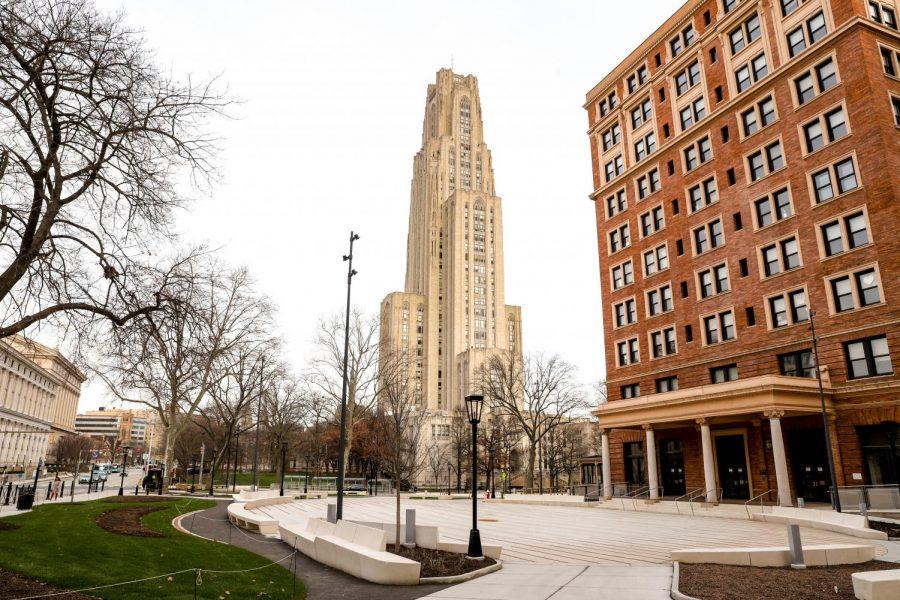Instead of spending the summer on vacation, some Pitt students such as Sakshi Yaragudipati spent the season lending support to rural communities in India with her fellow Project RISHI club members.
“It was amazing,” Yaragudipati, a sophomore finance and business administration major, said. “Everyone was so kind to us, and they were so respectful of us coming there. They were so happy to have us there, and it was a beautiful experience.”
Pitt’s Project RISHI (Rural India Social and Health Improvement) chapter began operating in 2018, and in the five years since has grown to nearly 40 members. The organization works to support rural communities in India through fundraising and projects. They host general board meetings on Mondays from 9 p.m. to 10 p.m. in David Lawrence Hall.
Neha Krishnamoorthi, who was president of the organization from 2021 to the spring of 2023, said Pittsburgh’s Project RISHI chapter focuses on lending support to stigmatized communities in India.
“In rural villages, the idea of mental health and physical disabilities is seen as impure. They’re not blessed, or basically [not treated] as human,” Krishnamoorthi said. “Our role is to be able to help grow [support] and help raise awareness.”
Krishnamoorthi became involved with the organization in its second year and said she is proud with how far the club has come since it started, especially since they had to work through the COVID-19 pandemic.
“The reality is that with a nonprofit, and especially with a nonprofit that’s so young, is that you’re still trying to develop your finances, the logistics, or being able to establish rapport,” Krishnamoorthi said. “I remember telling this to the GBM members and our board members as well — the work that we put in directly affects the outcomes.”
In working to grow the startup nonprofit into a legitimate national organization, Krishnamoorthi emphasized the importance of respect and empathy within the organization, and not treating the organization’s work as a travel opportunity.
“The big thing is, we don’t want to come into the mindset of a savior,” Krishnamoorthi said. “Because these are real people. These are communities. These are rural villages, and we’re coming from America.”
Nandini Rastogi, the current president of the student organization, said project RISHI has built connections with the staff and residents of an ashram — a community in India that houses people living apart from society, often for the purpose of spiritual teaching or support — located in Thirupathi, India. She said the club members lend support in any way the community needs.
“We meet with the directors of the ashram regularly to communicate what updates that they have, and based on what they’re working on, we come up with projects that may fill in some gaps where we can provide service,” Rastogi, a senior neuroscience and psychology major, said.
Rastogi explained that the ashram Project RISHI works with aims to provide housing and support for individuals of all ages with disabilities.
“This ashram is kind of a safe space,” Rasotgi said. “For community members, a lot of children were orphaned as kids, and a lot of them have a variety of physical and developmental disabilities, so they stay there and they get all the services they need.”
Yaragudipati traveled to the ashram with three other project RISHI members during the summer of 2023. She described her time working with the community as “eye-opening.”
Yaragudipati said some of the activities she organized with the community included an arts and crafts day, where the ashram residents learned how to use scissors and glue sticks, and a music day, where the community and club members performed for one another.
“Mental health is super stigmatized in India, so a lot of families either don’t want to take care of their mentally disabled family members or they just don’t have the resources to do so,” Yaragudipati said.
This semester, Rastogi said the club is focusing on integrating their new members into active projects and developing new initiatives to support the ashram.
“One of our project teams that we’ve been continuing from the past year is toolkits and databases,” Rastogi said. “They are working on creating a digitized version of [the ashram’s] donor database, [because] a lot of their organization is still on paper.”
Rastogi said the club is also working on a community outreach project to plan more activities with the ashram and a sustainability education project, which Yaragudipati is in charge of.
“[Sustainability] is not as well known in developing countries,” Yaragudipati said. “They don’t prioritize it in the same way [we do], so we are working on teaching them what to compost, what to recycle, what to throw away, so that in general the ashram and the town itself can be a little bit more sustainable.”
Rastogi also said because the majority of the organization’s funding comes from student efforts, Project RISHI is holding several fundraisers this semester, including a Pittsburgh Popcorn sale and a crowdsourcing campaign.
“We also get fundraising through grants, and we’re looking to get fundraising from some SGB allocations this semester as well,” Rastogi said.
Post-graduation, Krishnamoorthi said she is working to connect with other Project RISHI alumni in the national organization so she can continue supporting the club’s chapter at Pitt.
“My goal right now is to continue to establish communication with the national chapter and hopefully be able to make the national chapter more of a stronger unity so that the other chapters can feel supported,” Krishnamoorthi said. “After being in RISHI for four years, it’s definitely something that I miss a lot and I want to continue to get back into.”



